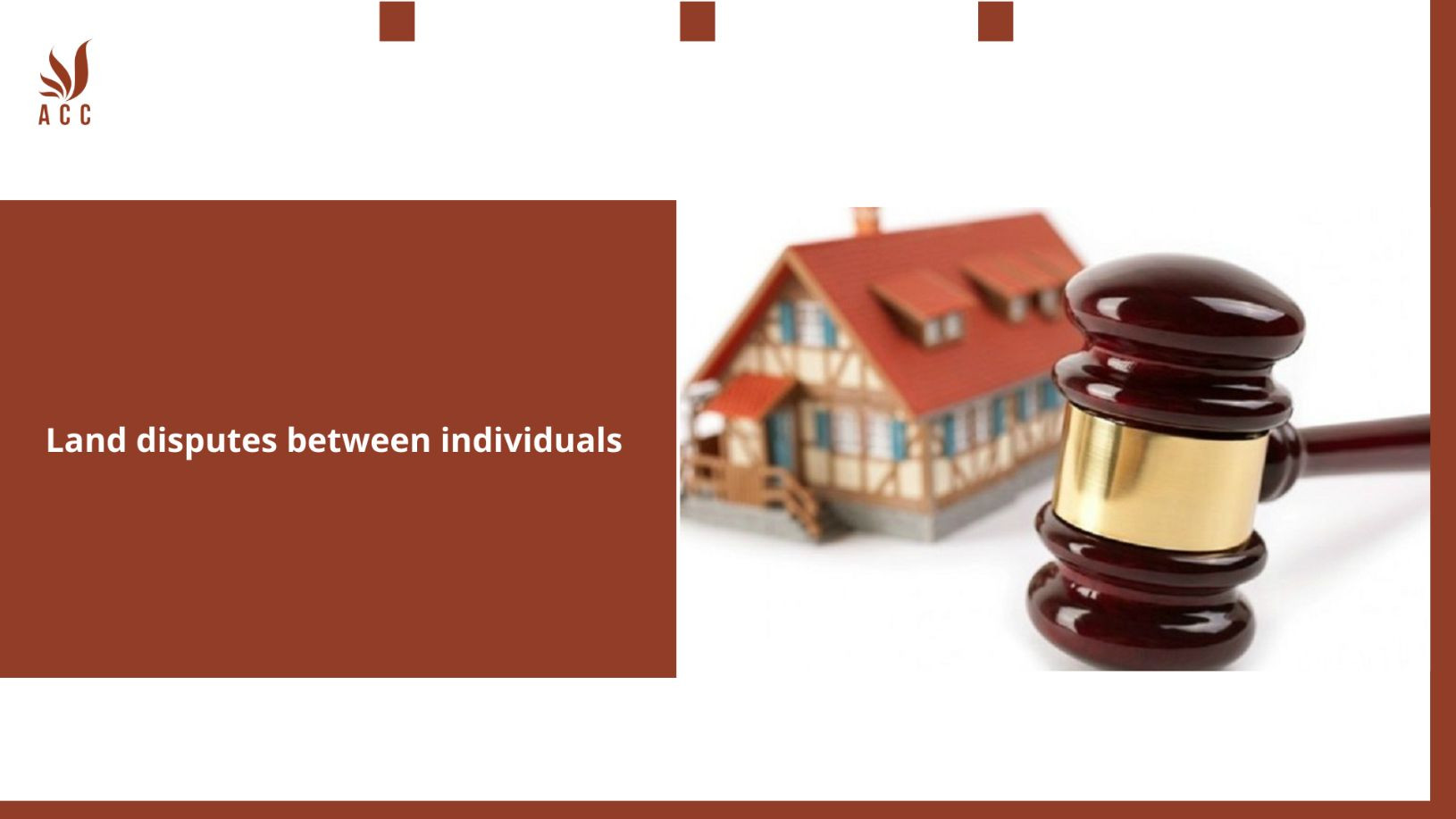Land disputes between individuals are conflicts or disagreements that occur between private parties regarding the ownership, use, boundaries, or other aspects of a piece of land or real property. These disputes can arise for various reasons and typically involve the following key elements:

1. Ownership Claims:
Disputes over who has the rightful ownership of a particular piece of land, especially when multiple individuals claim ownership.
2. Property Boundaries:
Conflicts related to the exact location of property boundaries, which can lead to disagreements between neighboring landowners.
3. Land Use and Zoning:
Issues related to how land is used, whether for residential, agricultural, or commercial purposes, can lead to conflicts over land use regulations and zoning.
4. Land Acquisitions:
Disputes can occur when land is acquired or transferred, especially if the process is not well-documented or if ownership records are unclear.
5. Inheritance and Succession:
In cases of inheritance or succession, disputes may arise over who has the rightful claim to a particular piece of land.
6. Tenancy Disputes:
Issues related to property rental or lease agreements, including disputes with tenants, may be part of land disputes between individuals.
7. When using ACC Law Firm's land-related services, entrepreneurs will receive
When using ACC Law Firm's land-related services, entrepreneurs will receive expert advice and assistance in navigating various legal aspects of land ownership and transactions. This includes guidance in property acquisitions, leases, zoning regulations, land use planning, and any other land-related legal matters. ACC Law Firm's team of experienced attorneys will provide personalized support to entrepreneurs, ensuring compliance with applicable laws and regulations, protecting property rights, and optimizing the value of their land investments.
8. Q&A
Q1: What is a land dispute between individuals?
A1: A land dispute between individuals occurs when two or more private parties disagree or have conflicting claims regarding the ownership, boundaries, use, or rights related to a piece of land.
Q2: How can individuals resolve a land dispute amicably?
A2: Individuals can attempt to amicably resolve a land dispute through negotiation, mediation, or arbitration. In many cases, seeking the services of a neutral third party, such as a mediator, can help the parties reach a mutually agreeable solution without going to court.
Q3: What is the role of legal professionals in resolving land disputes between individuals?
A3: Legal professionals, such as real estate attorneys, can assist individuals in understanding their legal rights, obligations, and options for resolving a land dispute. They can provide legal advice, represent clients in negotiations or litigation, and help ensure that the dispute is resolved in compliance with relevant laws and regulations.
Q4: When is litigation necessary in land disputes between individuals?
A4: Litigation, involving taking the dispute to court, may become necessary when individuals cannot reach an agreement through negotiation or alternative dispute resolution methods. This typically occurs when the dispute involves complex legal issues or when one party refuses to cooperate with an amicable resolution. Legal action should be considered as a last resort after all other options have been exhausted.
Nội dung bài viết:






Bình luận